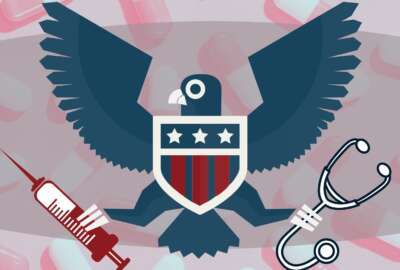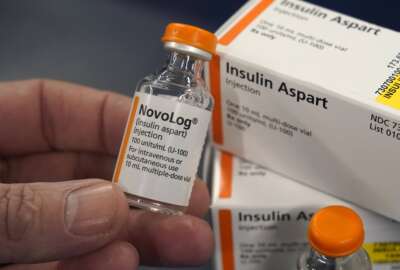6 reasons feds should take a look during Open Season this year
Federal employees and annuitants have some homework to do ahead of Open Season to ensure they’re in the plan that’s right for them.
A second year in a row of a big premium increase for the Federal Employees Health Benefits (FEHB) program is just one reason federal health experts are encouraging employees and annuitants to take advantage of Open Season.
Open Season, which runs this year from Nov. 13 to Dec. 11, is the window of time when FEHB enrollees can make changes to their health care options for the following calendar year. But each year, just about 5% of enrollees end up making changes.
For 2024, the upcoming 7.7% average premium increase is certainly grounds for enrollees, at the very least, to take a look at what other options are out there. Because that 7.7% increase is an average, that of course means not every plan will increase the same amount — and some won’t increase at all.
“Not all plans actually raise their premiums,” Kevin Moss, federal health expert at Consumers’ Checkbook, said in an interview with Federal News Network. “Last year, in fact, for 31 plans, the premiums decreased. For eight plans, the premiums were the same. 68 plans were below the average and then 47 were above the average.”
By letting Open Season fly by, enrollees could be missing out on thousands of dollars in cost savings, the Office of Personnel Management said.
OPM’s plan comparison tool lets FEHB enrollees compare different options and take a look at which ones are available in their geographic region.
Aside from rising premiums costs, here are five other reasons FEHB participants should take a look at their enrollments during this year’s Open Season.
Number of FEHB plan options dropping significantly
Compared with the available options for 2023, FEHB participants will see significantly fewer health plans in 2024.
For next year, participants can select from 158 total plans across 68 carriers, far fewer than the 271 plan options available in 2023.
The decrease is largely due to health carrier Humana exiting FEHB. The carrier offered a broad array of choices, but was not attracting a lot of enrollees, according to OPM.
That change is also not unique to FEHB — Humana is exiting the market entirely. But the health carrier will still be a provider in the Federal Employees Dental and Vision Insurance Program (FEDVIP).
Enrollees who were in a Humana plan, or any other plan leaving the FEHB program, will receive a notification informing them of the change. They’ll have to make a new selection during Open Season.
Anyone who doesn’t make a selection will be automatically enrolled in the lowest cost nationwide plan.
Reforms ahead for Medicare Part D
Changes to Medicare Part D are yet another reason that federal annuitants in particular should take a look during this year’s Open Season.
Medicare Part D reforms included in the 2022 Inflation Reduction Act (IRA), such as caps on insulin costs and out-of-pocket costs, offer a chance for feds to find cost savings in their health enrollments when choosing a plan that includes Part D.
“Federal employees really haven’t had to worry much about Part D in the past because prescription drug coverage in the FEHB plans has been as good as what you could get in a Medicare Part D plan,” Moss said. “It didn’t require you to go out to Medicare Part D and pay an extra premium in order to receive it.”
For 2024, federal annuitants can access Medicare Part D through one of two ways: a Medicare Advantage Plan or a Prescription Drug Plan (PDP).
The PDP is a new type of plan available this year in FEHB. In 2024, 17 FEHB plans will offer a PDP. The majority of PDPs will auto-enroll participants if they are in a plan that offers it and if they have Medicare Part A, or Medicare Parts A and B.
Medicare Advantage Plans have been around in FEHB for the last several years, but there are more options available next year. 28 FEHB plans will offer a Medicare Advantage Prescription Drug Plan (MA-PD) in 2024.
Dependent care options for military members
In one specific subset of insurance coverage, about 400,000 individuals are newly eligible to start a Dependent Care Flexible Spending Account (DCFSA).
Specifically, active-duty service members and members of the Active Guard Reserve will be able to enroll in the program starting in 2024.
DCFSA allows for pre-tax contributions for some dependent care services including preschool, summer day camp, before or after school programs and child or adult daycare.
The program expansion stems from an executive order that President Biden signed in June, which aimed to increase the hiring of military and veteran spouses in agencies by offering, for example, broader federal insurance coverage.
New infertility treatment coverage for 2024
Also beginning in 2024, FEHB enrollees who are looking at family planning options will see some coverage of infertility treatments.
All FEHB carriers will, at a minimum, begin coverage of two forms of artificial insemination and associated drugs, as well as three cycles of drugs related to in-vitro fertilization (IVF).
That coverage is significant. Just one cycle of IVF can cost up to $30,000, and 35% of that cost comes from the necessary prescription drugs.
The changes come, in part, after some lawmakers, including Rep. Gerry Connolly (D-Va.), called for infertility treatment options for federal employees.
“By implementing these improvements, OPM has helped the federal government on its worthy mission to become the employer of choice for millions of talented Americans looking to serve their country and start a family,” Connolly said in a statement.
Still, OPM’s new requirement leaves some gaps in coverage for ART procedures, most notably IVF procedures, as well as the cost of donor sperm, donor eggs and cryopreservation.
Federal health experts recommend that enrollees create and use a flexible spending account (FSA) through OPM’s FSAFEDS program to help offset some of the costs.
Eligibility for FEDVIP is expanding
Finally, federal employees and annuitants will see some big changes to the government’s dental and vision program, too.
Earlier this year, tens of thousands of temporary, part-time, seasonal and U.S. Postal Service employees became able to get dental and vision coverage through the program.
OPM set a 60-day special enrollment window for the newly eligible FEDVIP participants earlier this year, but that window has since ended. Those who missed the special window will be able to enroll during Open Season to get coverage for 2024.
Despite the significant expansion, OPM said it does not anticipate any major changes to costs for FEDVIP. In 2024, premiums will rise for FEDVIP dental plans by 1.4% on average. Vision plans will go up by 1.1% on average.
Copyright © 2025 Federal News Network. All rights reserved. This website is not intended for users located within the European Economic Area.
Drew Friedman is a workforce, pay and benefits reporter for Federal News Network.
Follow @dfriedmanWFED






